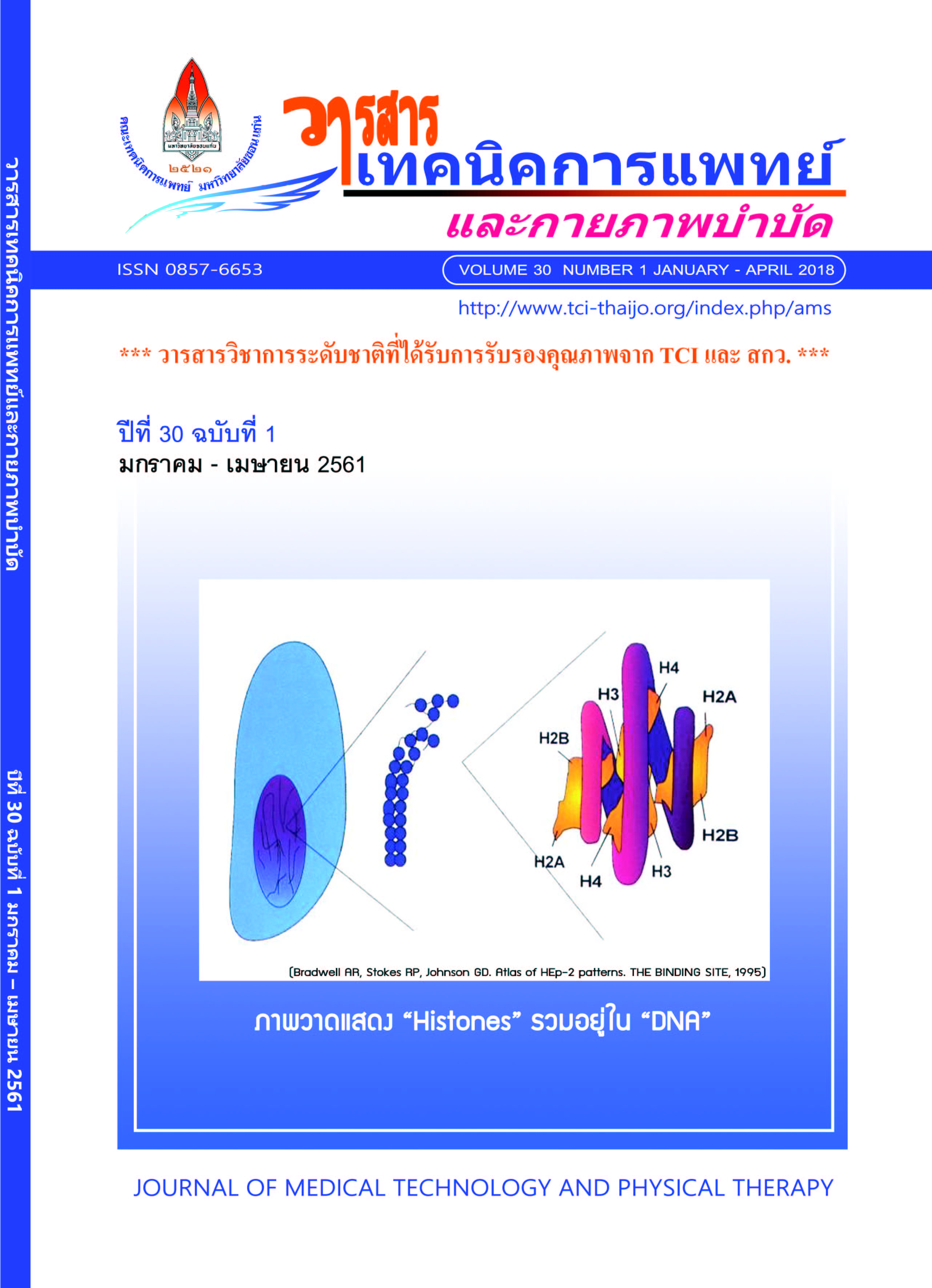Association between antibiotics used and risk of extended-spectrum β-lactamases Klebsiella pneumoniae Infection
Main Article Content
Abstract
The Extended-spectrum β-lactamases producing Klebsiella pneumoniae (ESBL-producing K. pneumoniae) infection is a public health problem worldwide. The treatments of the infected patients were complicated and might lead to therapeutic failure. Objective of this study was to investigate the association between antibiotics used as a risk of ESBL-producing K. pneumoniae infection. A hospital based case-controls study (Case: Controls =1:2), data were collected from Roi Et Hospital data base and all variables of interest were retrieved from medical records. All data of patients and control groups were recorded at Roi Et Hospital between January 1, 2014 to October 31, 2015. Descriptive statistics, univariable analysis and multivariable analysis by multiple logistic regressions were used for statistical analysis. The statistically significant was set at p-value <0.05. Among 125 cases, 50.4% were female with mean age 62.2 years (SD= +15.6) and couple 76.0%. Whereas 250 controls, 55.6% were male with mean age 55.0 years (SD= +17.4) and couple was 62.8%. The multiple logistic regressions analysis revealed patients received carbapeems (OR Adj. =1.9, 95% CI: 1.25-2.98), glycopeptides (OR Adj. =4.1, 95%CI: 1.98-8.45), phenicals (OR Adj. =2.6, 95%CI: 1.09-6.10) and quinolones (OR Adj. =5.6, 95%CI: 1.89-16.65) for treatment, were risk factors of ESBL-producing K. pneumoniae. In conclusion, this study revealed patients who were underwent with carbapenems, glycopeptides, phenicals and quinolones were risk factors for ESBL-producing K. pneumoniae infection.


